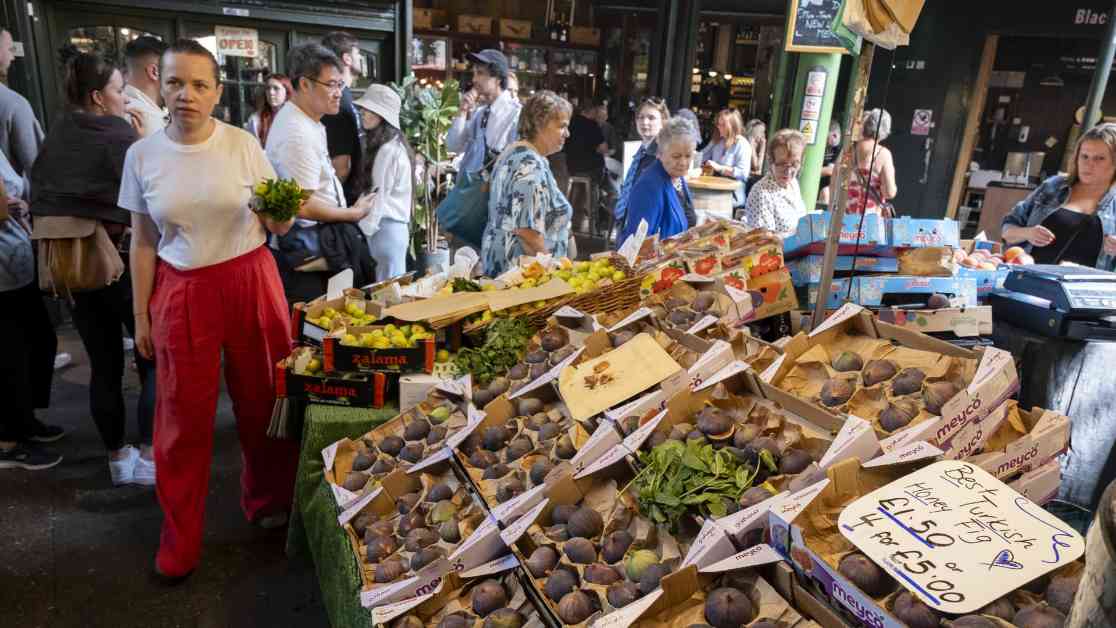In a bustling corner of London, Borough Market stands as a testament to the city’s rich history and vibrant culture. This iconic retail food market, nestled in Southwark, has been a cornerstone of the community for centuries, dating back to the 12th century. On a brisk morning in late August, as the sun cast a golden hue over the market stalls, the air was filled with the aroma of fresh produce and the lively chatter of vendors and shoppers alike.
Amidst this picturesque scene, a significant economic development was unfolding. The Office for National Statistics (ONS) had just released data revealing a sharp rise in the UK’s inflation rate to 3% in January, surpassing analysts’ expectations. Economists had anticipated a more modest reading of 2.8% for the twelve months leading up to January, making this uptick all the more noteworthy.
The core inflation rate, which excludes volatile components like energy, food, alcohol, and tobacco prices, saw a notable increase to 3.7% in the same period. This surge was driven by a variety of factors, including a slower decline in airfares typically seen at this time of year, as well as price hikes in essential goods such as meat, bread, and cereals. Private school fees also saw a substantial rise due to new VAT regulations, pushing prices up by nearly 13% in January.
Grant Fitzner, the ONS’ chief economist, shed light on the reasons behind this inflationary spike, citing the impact of holiday travel patterns on airfares and the rising cost of food and non-alcoholic beverages. His insights provided a glimpse into the complex web of factors influencing the nation’s economic landscape, from global market trends to domestic policy changes.
Amidst these economic fluctuations, Chancellor Rachel Reeves emphasized the importance of fostering economic growth and easing financial burdens on families. Her commitment to putting “more money in people’s pockets” underscored the government’s dedication to supporting households grappling with the rising cost of living. As millions of families continued to face financial challenges, Reeves’ words carried a sense of urgency and compassion, resonating with the struggles of everyday citizens.
Ruth Gregory, deputy chief U.K. economist at Capital Economics, weighed in on the implications of this inflationary surge, pointing to the role of energy prices in driving up consumer prices. While the prospect of inflation exceeding 3% in the coming months loomed large, Gregory remained optimistic about the economy’s resilience. She projected that inflation would eventually taper off to below 2% by 2026, as temporary effects waned and economic conditions stabilized.
As the British pound held steady against the dollar in the wake of this data release, the broader implications of this inflationary trend remained a topic of intense debate among economists and policymakers alike. The delicate balance between economic growth and price stability underscored the challenges facing the nation in navigating a complex and ever-evolving global landscape.
In the heart of Borough Market, where the rhythm of daily life unfolded against a backdrop of centuries-old traditions, the echoes of economic uncertainty resonated with the vibrant spirit of resilience and adaptability that defined this iconic locale. As vendors set out their wares and shoppers bustled through the market stalls, the ebb and flow of daily life continued unabated, a testament to the enduring spirit of community and camaraderie that defined this historic corner of London.

























